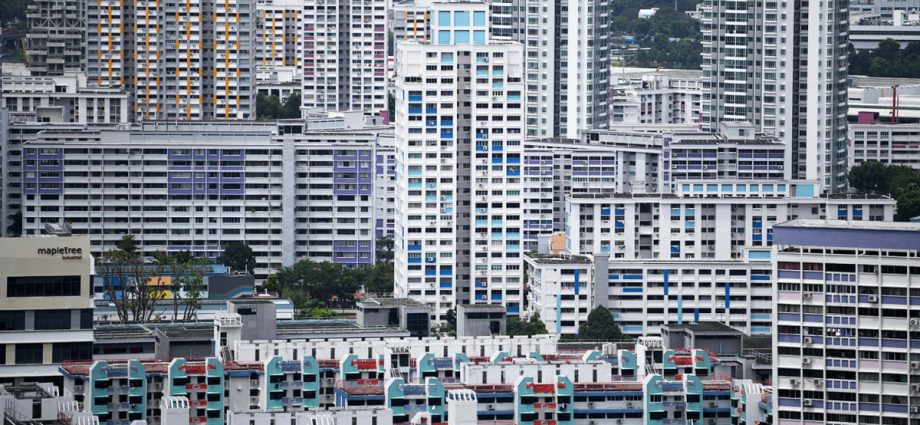
Q: Which is better – fixed or floating rate home loan?
Some experts have recommended home owners opt for fixed rate mortgage packages to hedge against future rate increases.
For example, an individual taking out a S$400,000 loan with a 25-year tenure at a fixed interest rate of 3 per cent would have a monthly instalment of S$1,897. If the same individual takes up a floating rate package priced at 1.8 per cent, he or she would pay S$1,657 instead a month, said Mr Lee.
But this difference may narrow in the months ahead given expectations of rising interest rates, he added, noting that some may prefer a fixed rate home loan for peace of mind.
On the other hand, Mr Goh pointed out how Fed funds rate has been going up in “almost a straight line”, which suggests that the interest rate cycle “will hit the peak and come down much sooner than past cycles”.
“(The Fed) hopes not to trigger a recession but will risk one if that’s necessary to achieve its price stability mandate at all costs. In other words, Fed will pause rate hikes at some point in 2023 and typically, rates tend to reverse down after that,” he said.
“So the key here is not to be locked into a home loan package for too long. The way we see it, the risk is high now for those who are contracted all the way till end of 2024, as they might get stuck with a much higher rate than they like when the frenzy ends.”
Q: Pay my loans earlier? What other options are there?
Some experts that CNA spoke to previously have also suggested home owners consider making partial or full repayments, increase the use of CPF for monthly loan instalments, or lengthen one’s loan tenure to lower the monthly instalment.
But each option has its pros and cons.
For earlier loan redemptions, Mr Goh said this depends on one’s age and risk appetite.
“It’s not a good idea to repay mortgages too early, as the flip side is you reduce your opportunity to grow your investments. However, the risk-reward for investing is a whole different topic altogether and some people (may prefer to repay their) debt,” he explained.
When it comes to deciding whether to use cash or CPF for repayments, Mr Chia recommends using excess cash as funds in CPF can earn an interest rate of 2.5 per cent.
Also, home owners will need to return the amount they have taken from their OA, plus accrued interest, when they sell their house.
Mr Goh suggests home owners decide based on the prevailing mortgage rates.
“If it goes above the CPF OA rate of 2.5 per cent, you should use CPF, rather than cash,” he said. “Understand that you are still ‘borrowing’ when you do that (so) naturally you’ll pick the one who charges a lower rate.”
Ultimately, prudence is the way to go.
“Interest rate hikes will have winners and losers. Home owners need to brace for rising rates and ensure they practise prudent financial management,” said Mr Chia.

